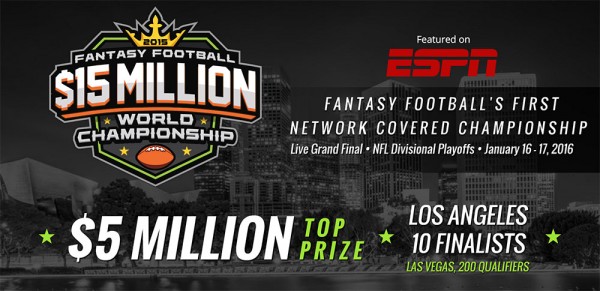
You’ve probably seen more than an ad or two this fall for DraftKings or FanDuel, two massive online fantasy sports websites valued at over $1 billion each. Since 2009, the number of fantasy sports players has doubled, and, as of August, 56.8 million participated in the United States and Canada (according to the Fantasy Sports Trade Association). It’s not all fun and games, though. The New York Attorney general launched an investigation into these sites, and a recent feature in The New York Times highlights how deep the rabbit hole goes for illegal online gambling on fantasy sports. It is easy to focus on scandalous stories of crime rings, big winnings, and crushing losses, but these sites are not just about gaming the system. Sociologists emphasize that they are also powerful social communities driven by cultures of masculinity and fandom.
Eric Leifer argues that the history of sports fandom in the U.S. is place- and team-based—fans supported the team in their town or region as a marker of community membership. Fantasy leagues and social media challenged this by shifting the focus from entire teams to individual athletes’ performance.
- Eric M. Leifer. 1995. Making the Majors: The Transformation of Team Sports in America. Harvard University Press.
- John P. McGuire, Greg G. Armfield, and Jeff Boone. 2012. “Show Me the Numbers! Media Dependency and Fantasy Game Participants.” pp. 275-287 in Sports Fans, Identity, and Socialization ed. Adam C. Earnheardt, Paul M. Haridakis, and Barbara S. Hugenbeg.
- Matthew David and Peter Millward. 2015. “Sport and New Media” pp. 388-397 in Routledge Handbook of the Sociology of Sport ed. Richard Giulianotti.
Sociologists, especially, focus on the racialized and gendered nature of sport-based communities. Members often forge strong social ties in male-dominated spaces that emphasize knowledge and expertise, and the groups can privilege racial stereotypes and racialized assumptions about athletic performance.
- Nickolas W. Davis and Margaret Carlisle Duncan. 2006. “Sports Knowledge is Power: Reinforcing Masculine Privilege Through Fantasy Sports League Participation.” Journal of Sport & Social Issues. 30(3): 244-264
- Adam Love and Matthew W. Hughey. 2015. “Out of Bounds? Racial Discourse on College Basketball Message Boards.” Ethnic and Racial Studies 38(6):877–93.
Fantasy sites (and the betting that ensues on them) are in line with other case studies that show how online socialization is not “less real” or consequential than offline social interaction—both teach everything from harmless play to deviant behavior. We see the power of online interaction in everything from hackers developing their own open-source political theory to online peers teaching others how to download music for free and sport message boards reinforcing racial stereotypes.
- Gabriella Coleman. 2012. Coding Freedom: The Ethics and Aesthetics of Hacking. Princeton University Press
- George E. Higgins, Catherine D. Marcum, Tina L. Freiburger, and Melissa L. Ricketts. 2012. “Examining the Role of Peer Influence and Self-Control on Downloading Behavior.” Deviant Behavior 33(5):412–23.
Of course, gambling is tied up in these social structures. While American society has “medicalized” compulsive gambling, treating it as an individual and treatable problem, more recent work shows how social environments create what gamblers want most: a chance to be in the “zone” and play for long periods of time. The strong communal aspect of fantasy sports websites makes them a perfect space for sustained play.
- John Rosecrance. 1985. “Compulsive Gambling and the Medicalization of Deviance.” Social Problems. 32(3):275-284
- Natasha Dow Schüll. 2012. Addiction by Design: Machine Gambling in Las Vegas. Princeton, N.J.: Princeton University Press

Comments